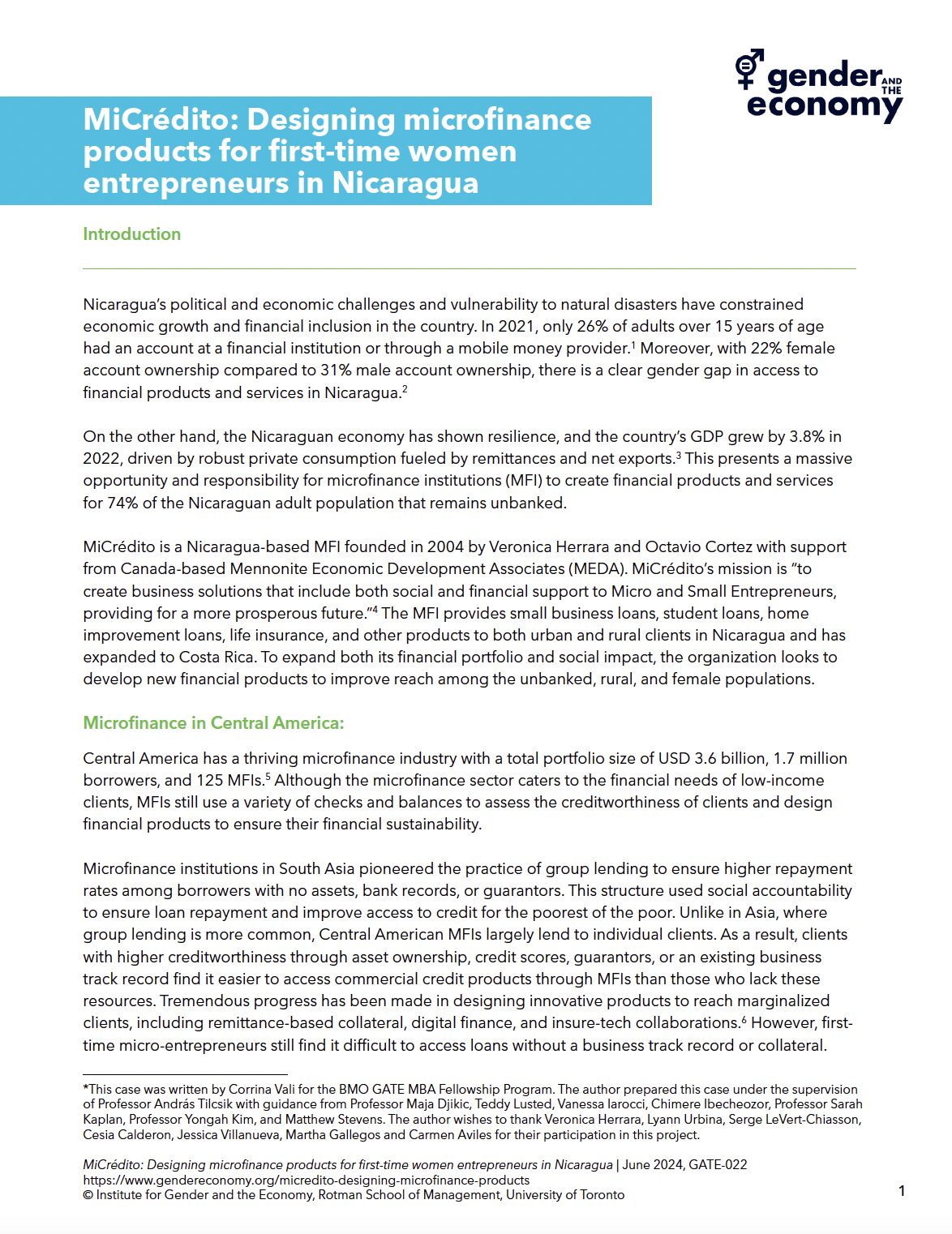Overview
This case study examines how Mujer Emprende, a microcredit product developed by MiCredito uses innovative features to de-risk ‘risky’ clients and maintain profitability, all while supporting women led businesses.
Introduction
Nicaragua’s political and economic challenges and vulnerability to natural disasters have constrained economic growth and financial inclusion in the country. In 2021, only 26% of adults over 15 years of age had an account at a financial institution or through a mobile money provider.1 Moreover, with 22% female account ownership compared to 31% male account ownership, there is a clear gender gap in access to financial products and services in Nicaragua.2
On the other hand, the Nicaraguan economy has shown resilience, and the country’s GDP grew by 3.8% in 2022, driven by robust private consumption fueled by remittances and net exports.3 This presents a massive opportunity and responsibility for microfinance institutions (MFI) to create financial products and services for 74% of the Nicaraguan adult population that remains unbanked.
MiCrédito is a Nicaragua-based MFI founded in 2004 by Veronica Herrara and Octavio Cortez with support from Canada-based Mennonite Economic Development Associates (MEDA). MiCrédito’s mission is “to create business solutions that include both social and financial support to Micro and Small Entrepreneurs, providing for a more prosperous future.”4 The MFI provides small business loans, student loans, home improvement loans, life insurance, and other products to both urban and rural clients in Nicaragua and has expanded to Costa Rica. To expand both its financial portfolio and social impact, the organization looks to develop new financial products to improve reach among the unbanked, rural, and female populations.
To view and download the full case study, follow these instructions.
This case is accompanied by a video supplement which can be viewed below:
This case was written by Corrina Vali for the BMO GATE MBA Fellowship Program. The author prepared this case under the supervision of Professor András Tilcsik with guidance from Professor Maja Djikic, Teddy Lusted, Vanessa Iarocci, Chimere Ibecheozor, Professor Sarah Kaplan, Professor Yongah Kim, and Matthew Stevens. The author wishes to thank Veronica Herrara, Lyann Urbina, Serge LeVert-Chiasson, Cesia Calderon, Jessica Villanueva, Martha Gallegos and Carmen Aviles for their participation in this project.





